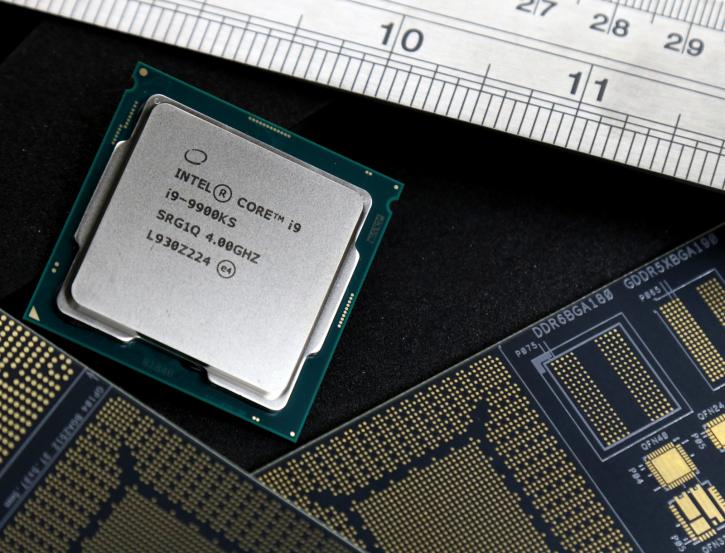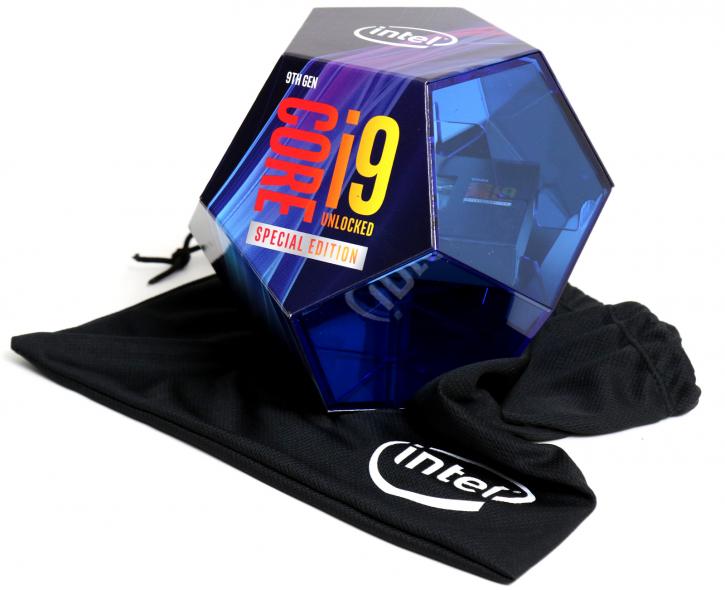Final Words & Conclusion
Conclusion
Is the 9900KS Special addition an exciting processor or not? That is a question that I have been asking myself. The answer to that is more complicated then I would have thought. On a personal note, I like it, purely from a gaming point of view squeezing out that last bit of perf out of your graphics card. And even there there are restrictions, let me quickly rephrase; this processor will squeeze out every last frame and is the faster processor for enthusiast-class gaming. Why do I highlight enthusiast-class you wonder? Well, because you will only see these differences with graphics cards running 600 USD and upwards, you need to be free from GPU bottlenecks, and realistically 90% of you guys are GPU bound, and there your processor matters far less as the game runs as fast as your graphics card can cope with. But comparing apples to oranges, yes this is the fastest gaming processor your money can get you. That money is the second thing of interest, the 9900KS is just over 500 bucks. For the same amount of money, you can get the 3900X with 12c/24t. It will rip a hole on the 9900KS in pretty much anything single-threaded and multithreaded thanks to the four more cores. But enthusiast gaming-wise (yes, here we go again) the 9900KS will offer the win here if you have a fast enough graphics card (I can't stress that enough). Pricing wise I feel it's a fair amount of money though, at roughly 65 bucks per core, considering what it offers: leading performance for enthusiast performance gaming.
Power consumption
With this eight-core and sixteen threads proc you get a 127 Watt TDP processor. With the system at idle with a GeForce RTX 2080 Ti installed / 16 GB memory / SSD and the Z390 motherboard, we hovered at roughly 65 Watts in IDLE. That's okay, the load values are okay as well but definitely a notch higher. When we stressed the processor 100% we reach roughly 225 Watts with this 8-core part. That's the entire system. That is on the high side alright. Then again, does anyone actually care about it when you get performance metrics like shown today?
DDR4 Memory
For Coffee Lake-S (8th and 9th Gen Intel procs) and DDR4 we always say volume matters more than frequency. A 3200 MHz kit, for example, is more expensive and does offer better bandwidth but the performance increase in real-world usage will be hard to find. Unless you transcode videos over the processor a lot. As always, my advice would be to go with lower clocked DDR4 memory with decent timings, but get more of it. Don't go for 8 GB, get two or four DIMMs and in total a minimum of 16 GB. The reason we test at 3200 MHz is simple, we do the same for AMD Ryzen and want to create a fair and equal playing ground for both. 3200 MHz to 3600 MHz, however, a very nice equilibrium, or status quo if you will, for both processor brands.
Performance
I'd rate this 8-core processor as 'exceptionally good' for gaming, as well as exceptionally good for your typical threaded desktop applications. Temperatures with SMT in this 8-core part is quite a notch higher but fine under default circumstances and clock frequencies. We do recommend liquid cooling. Remember, the 9900KS has been sorted and binned to run 5 GHz on all cores at the lowest possible voltages, that helps.
Overclocking
As just mentioned, Intel needs to bin their processors, sort the best ones that can manage 5 GHz on all cores stable with some reserve as well. That creates a certain expectation for overclocking and tweaking. However, Intel Core i9 9900KS processors seem to be running close to their maximum frequency. At default voltages, we reach a clock speed of 5.2 GHz (all cores). The pass 5.2 GHz we need more voltage. We reach 5300 MHz on all cores stable, with 1.35 Volts applied on the CPU. You will need a liquid cooler / LCS for this.
Final words
The Intel Core i9-9900KS drops into the flagship position in Intel’s desktop consumer processor portfolio. So who is going to purchase the 9900KS? Well, presumably I expect it to sell well. There is a small niche of enthusiast DIY aficionados that do not want to compromise even the slightest bit on game performance. However with the latest Ryzen 3000 processors, not everything is that clear anymore as different workloads can be applied with different processors, we cannot shy away from the fact that from 6 to 32 cores, AMD has some sort of Ryzen (Threadripper) processor available grabbing Intel by the throat. Strictly speaking, from a gaming point of view, if you have that GeForce RTX 2080 (Ti) and no budget caps, then there's no better CPU than what Intel released here, and that is a simple truth.
The Core i9-9900KS is the same 8-core die as the 9900K really, graphics, but offers the luxury of a turbo on all cores at 5.0 GHz. Remember though, the length (runtime in seconds) of the turbo will be motherboard dependent, so that can differ per brand. Most will have that value set at 128. You can unlock, shorten or lengthen it yourself in any Z390 BIOS really.
Timing is also of the essence as the next generation of 'mainstream' processors from Intel are peeking around the corner: Comet Lake is said to be hit the market at the beginning of 2020. It would offer up to ten cores on (we assume) socket 1200. Processors that will be vulnerability hardened as well. But if you are on the 300 chipset platform, this is the easier and likely a cheaper step to make. In closing, stability and functionality wise anything and all ran as expected with even slightly better performance coming from the regular 9900K. Highly recommended for the enthusiast-class gamers that do not want to settle for a single frame little less.
Handy related downloads:
- Sign up to receive a notification when we publish a new article
- Or go back to Guru3D's front page




